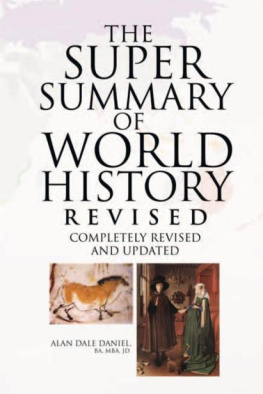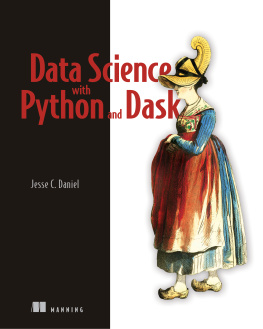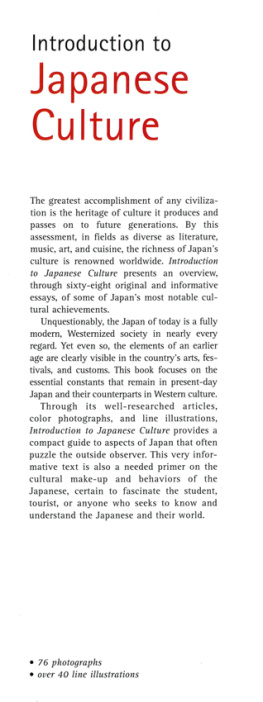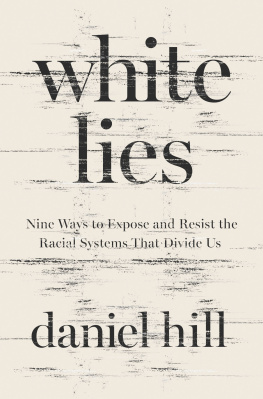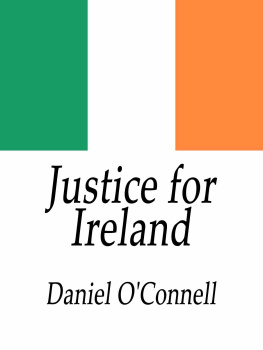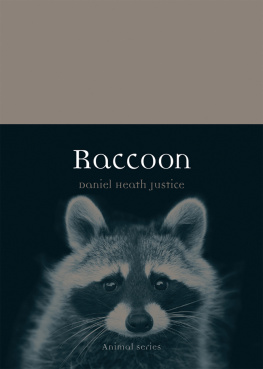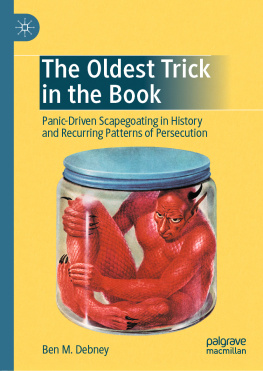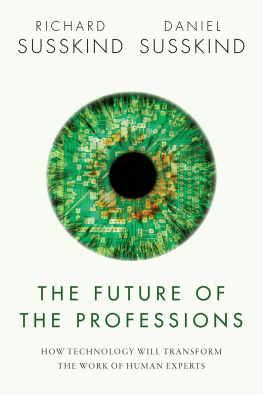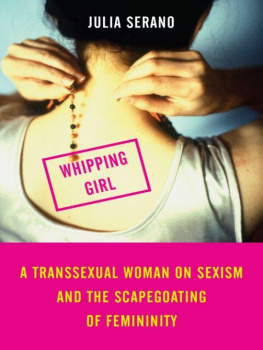S capegoats for a P rofession
UNCOVERING PROCEDURAL INJUSTICE
Ann Daniel
University of New South Wales Sydney, Australia
Copyright 1998 OPA (Overseas Publishers Association) Amsterdam B.V. Published in The Netherlands by Routledge.
All rights reserved.
No part of this book may be reproduced or utilized in any form or by any means, electronic or mechanical, including photocopying and recording, or by any information storage or retrieval system, without permission in writing from the publisher.
By Routledge
2 Park Square, Milton Park, Abingdon, Oxon, OX14 4RN
Transferred to Digital Printing 2006
British Library Cataloguing in Publication Data
A catalogue record for this book is available from the British Library.
ISBN 90-5702-276-1
ISBN 978-1-136-65068-0 (ePub)
Cover design by Jessica Cotterell.
CONTENTS
ACKNOWLEDGMENTS
This research has been made possible through the trusting cooperation of the people whose stories are told in the book. I hope I do justice to the candour and confidence of our discussions.
Family who work in the media and the systems of law and health counselled my interpretations of events. Their advice on things legal and medical and on the clarity of my writing was invaluable.
Dianne Burn joined forces with my first research assistant, Jaqueline Foyster; Dianne added to her field research an expert knowledge of the law governing professional conduct and practice and Jaqueline brought remarkable powers of investigation to the research task. Stefan Horarik searched the library for references. Janette Murdoch, who works with me in the School of Sociology, aided and abetted the production. I am deeply indebted to our family and these friends.
Others, who are not explicitly named, have assisted from their positions in the justice systems, the health department and the conduct divisions of law and medicine. The Health Care Complaints Commissioner, Merrilyn Walton, as well as the managers of the Conduct Division of the Law Society, first Fred Smith and, in recent years, Garry Still, have given me access to materials and advice.
Like all my colleagues at the University of New South Wales, I am indebted to the librarians at the university library for their continuing assistance. Their large part in the work of scholars in the humanities and social sciences calls for recognition.
This research and other work still in progress was assisted by a three-year grant from the Australian Research Council. The value of such financial assistance is readily recognised. The anonymous peer encouragement which such grants embody should be equally acknowledged. An ARC grant is a licence to work harder!
Amongst the scholars who advised on earlier papers I should count Professor Alan Kerckhoff of Duke University who arranged for me to present a paper which prompted lively discussions at a formative stage with his colleagues in Sociology at Duke. In Ireland Mr Justice OFlaherty, James Nugent SC, former President of the Bar Council and my friends Gail and Sean Freyne of Trinity College provided research leads and great conversations.
I am grateful to the editors at Harwood Academic Publishers, and to Professor Bouma and the other reviewers of early chapters of the book who urged its publication.
Throughout the research and writing of this book my husband, Ray Burn, prompted and supported its making. His critical intelligence and extensive knowledge of professional life guided and stimulated my enthusiasm for the inquiry and made possible its completion.
INTRODUCTION
D isciplinary P ractices
In 1993 I began a study of the discipline of professions, a path trodden by many researchers before me. Professions appear as self-important, self-regarding, moral communities tightly knit together. Their disciplinary practices are directed to an engagement with learning and skill. They value obligations to colleagues, and, beyond the collegiate, some care for the community where the profession is practised. My search was directed to those disciplinary practices governing learning and loyalty, standards, sanctions and the solidarity of the group.
My inquiry started with the practice of law and medicine and in this book I do not move beyond those domains. The medical and legal professions are prominent in the public arena, subject to the public gaze, exclusive and excluding the unqualified from belonging and participating in their practice. They are exemplary communities of interest. The common view holds that such professions are require solidarity, that they repudiate the accusations of outsiders, and that they look after their own. This view has led to assertions that self-regulation and self-discipline, will not avail to ensure good practice. But my investigation into the disciplinary practices of self-regulation found quite differently. Professions protect the profession. Members who are seen to transgress may be initially treated with compassion, but are soon liable to be denounced, pilloried, and driven outnever again to belong to the society of registered practitioners.
The standards of a group are seen most clearly when these are transgressed. Discipline appears where it is imposed on transgressors. It can be exerted as subtle, firm pressure within. When that fails recourse may be had to external pressuresthe complaints mechanisms, investigations, prosecutions, tribunals. I turned to public enactment of discipline to see how a profession may uphold identity, status and reputation, when all else fails. This led to selecting for close observation those cases involving high-profile practitioners accused of scandalous complaints. They were prominent in the daily news; the media selected my sample.
Then a serendipitous issue emerged: Some of these notable practitioners were positioned at the centre of a wider scandal in the profession. They might embody all that had gone wrong and their going might serve to put an end to the scandal. Were some practitioners being scapegoated for the good of the profession, or were they being sacrificed by some equally intense and cohesive group?
These questions sent me to inquire into scapegoating as a sociological process, one adopted by a group to maintain its integrity, good order and purity. The scapegoat could be sociologically investigated; it could be found inscribed in myth and history. There were many accounts in anthropologists tales, in the stories and plays of classical antiquity, in actions taken up in more recent drama, and in the literary criticism which teases out the recurrences of an ancient stratagem to rid the world of evil or the semblance of evil.
But could scapegoating figure in the justice systems of a modern democracy? I searched for all I could read about scapegoating and the purposes it might serve today. Scapegoating, I soon found, is not a simple victimisation which can occur at any timewhenever someone is picked as a focus for derision or contempt. Scapegoats take a larger role and act to resolve the mass disaster which spawned them.




